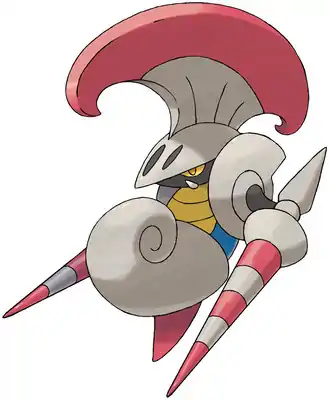Escavalier (5e Creature)
Escavalier
|
Small monstrosity, any alignment Armor Class 19 (natural armor)
Saving Throws Str +7 Overcoat. The escavalier can breathe normally in any environment, and it has advantage on saving throws made against harmful gases and vapors (such as cloudkill and stinking cloud effects, inhaled poisons, and the breath weapons of some dragons). Swarm. While it has 50 hit points or fewer, the escavalier has advantage on attack rolls. In addition, it deals an extra 7 (2d6) damage to any target it hits with a melee attack. Outsize Strength. While grappling, the escavalier is considered to be Medium. Also, wielding a heavy weapon doesn't impose disadvantage on its attack rolls. ACTIONSMultiattack. The escavalier makes three lance attacks. Lance. Melee Weapon Attack: +7 to hit, reach 10 ft., one target. Hit: 10 (1d12 + 4) piercing damage. REACTIONSParry. The escavalier adds 3 to its AC against one melee attack that would hit it. To do so, the escavalier must see the attacker and be wielding a melee weapon. |
|
Back to Main Page → 5e Homebrew → 5e Creatures


